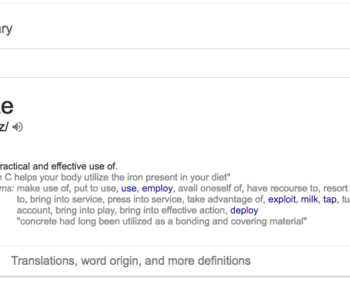 Career
Career
So, You Want to Work Abroad? Read This First
In spring 2015, my husband texted me a spreadsheet with the names of a bunch of Army officers and locations of their next assignments. His name was highlighted next to “Germany.” Germany. Germany?
I was shocked. True, this was much preferable to many of the alternatives. But it did raise a major question: Where did this put my career?
I’d already been working remotely from Arizona for an ad agency in Seattle. But a nine-hour time difference? If there was ever a time to take a shot at leaving the traditional workforce, it was now.
I know plenty of people who work remotely, including those who work remotely from foreign countries. However, they’re usually working abroad for a month or two at a time. This would turn out to be four years.
But I love my husband and, to be honest, we didn’t have any say in the matter so … Hallo, Deutschland.
After about a year abroad, things began to click. I felt more comfortable in our new home, if not 100% confident. Yet, isn’t it a requirement of creative types to doubt themselves? That’s what I told myself anyway. I visited co-working spaces (turns out, not for me). I dreamed of a professional version of Tinder. And I learned a few things worth sharing for others thinking of working remotely.
One: Language
After verifying that my husband’s initial “We’re going to Germany” text wasn’t a cruel joke, l purchased Rosetta Stone. Surprise: I never attained fluency. (My husband gave up after six months of working with the French in Africa, only to return and have a German tell him, “Bro, I speak English.”)
Without fluency, there was always a low-lying stress. Not because we couldn’t get by, but because communicating is what I do. Suddenly, I had 0.01% of the vocabulary and had to get over not having a slew of synonyms at my disposal. So, I got really good at other forms of communication. “Do you have … for hair …?” I once asked a woman at a pool, tying my hair back with my hands. I got the hair tie.
Tip: Learn the basics — even if most people speak English where you’re going. We got by with our not-even-Kindergarten-level German, and our efforts rewarded us with connections we wouldn’t have made otherwise (and tables at completely booked restaurants). Plus, who doesn’t have a use for “kummerspeck” in their daily life?
Two: Taxes
No matter where you’re working, if you’re a U.S. citizen, the IRS expects you to file a tax return. But did I need to pay German taxes, too? Was the foreign tax credit or the foreign tax deduction better? I’m not a legal expert, so questions like these were a total conundrum.
I worked for companies in the U.S., but I was physically in Germany, but I wasn’t selling anything in Germany, and I was on a U.S. Army base, but this was still technically German property … and on and on it went.
Tip: Hire professionals if you’re in over your head.
Three: Time Difference
Even though most of my clients are on the East Coast, the six-hour time difference definitely created issues. When my husband was gone for work, I’d often travel on my own. This made the time difference work in my favor. I could enjoy my days and then, come afternoon, settle in for work. However, as most people know, you can only burn the candle at both ends for so long. After about a year, I instituted a no-calls-after-9 p.m. policy.
Tip: Set your boundaries, or risk working 10-, 12-, even 14-hour days.
Four: Friends
People with a traditional 9-to-5 hang out after work. In Germany, it was the opposite. With all the moving around, military spouses have a hard time finding work under normal circumstances, never mind while living abroad. As such, hangouts happened during the daytime.
“But you were taking calls at 9 p.m.; surely you could go out to lunch?” you might be thinking. With my husband at work during the day, I worked during the day, too, in the hopes I could actually spend time with him at night. Turns out, I just worked 12-hour days and hung out with the one spouse I met who also worked remotely.
Tip: Really, set your boundaries. Remote workers may be more productive, but they also have a harder time unplugging after hours. Making time for family and friendships is critical to avoiding social isolation.
Five: Travel
Every week, people asked where we were traveling. I had to remind them we won the military-assignment-process lottery, not the actually lottery. I wasn’t working from Paris every weekend, but rather grocery shopping, updating our car registration and doing other errands that needed to get done. Reminding friends and family I wasn’t on vacation was an ongoing battle.
Tip: If you’re planning to spend some time abroad while working, be sure to set expectations with yourself and your clients. Having the flexibility to do what you want, when you want may mean taking on less work. Or, if you’re keeping the same workload, it may mean spending more time abroad to tackle all the activities on your list.
Living and working abroad has its pros and cons — like everything else in life. And if you’ve ever had an itch to try it, I highly recommend it.
Just don’t ask me about taxes.









